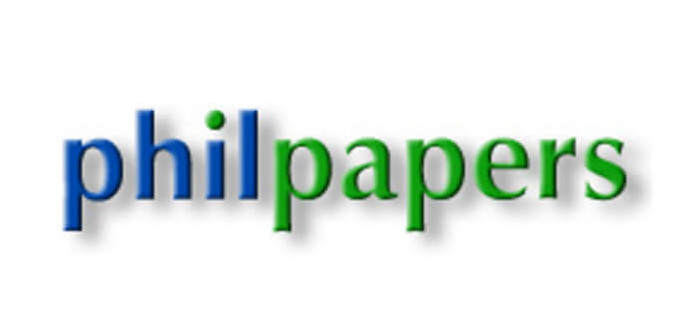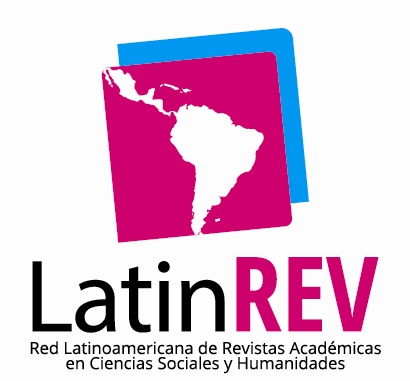About the Journal
Focus and scope (Scope)
The Disertaciones Journal is a publication of the Philosophy Program of the University of Quindío, founded in 2010, and is aimed at the national and international academic and scientific community. It is published semiannually and its purpose is to disseminate original texts and results of research carried out in the various fields of philosophy and related areas such as social sciences and humanities, to contribute to philosophical reflection and criticism. The articles it publishes are aimed at students, professors, teachers, researchers and captive readers of philosophical topics. It is aimed at critical and reflective readers who are concerned about current problems in society, culture and people. In this way, it contributes to the strengthening of academic networks and to visualizing the results of research processes.
Peer review process
The papers submitted for publication in the Disertaciones Journal must be original and unpublished. Manuscripts that have been published in any other media, whether printed or online, will not be accepted. For the selection of papers, priority will be given to original works that are the result of research projects. First, the editorial team determines whether the manuscript meets all the necessary requirements of the journal: pertinence, relevance, organizational structure, and number of references. If the document fits the journal's editorial policies, it will be sent for peer review, who will be selected for their affinity in the research field of the document. In this second part, the document is reviewed by experts in the field who will provide their comments on internal coherence, relevance to the field of knowledge, the state of the art, conceptual and methodological rigor, critical reflection, and contribution to the field of knowledge.
The journal determines that the ideal review time is 30 business days. If this deadline is not met, the document will be sent to the new evaluators.
The comments of the judges, as well as those of the editorial committee, must be taken into consideration by the author, who will make the necessary adjustments. The author must make these changes and corrections to the manuscript in no more than 10 business days. Once the modified document is received, it will be added to a new review and the author will subsequently be informed of its approval. The committee reserves the right to accept or reject the works that were published in each edition of the journal. The journal reserves the right to make style corrections, which will always be consulted with the author. During the editing process, the editor may consult the authors to resolve any concerns that may arise.
It is important to note that the double-blind peer review process allows for continuous improvement in the quality of publications and the comments of the authors. This system seeks to improve the editorial quality of publications in order to disseminate this knowledge at a regional, national and international level. Furthermore, peer review by experts in the field ensures that editorial policies are met and the journal guarantees the publication of articles that have methodological rigor.
Open Access Policy
This is an open access journal, which means that all of its content is available for free and at no charge to the user or their institution. Users may read, download, copy, distribute, print, search for, or link to the full texts of articles, or use them for any other lawful purpose, without prior permission from the publisher or author.
- We do not charge Article Processing Fees (APC).
- We do not charge for article submission.
Disertaciones Journal provides immediate and open access to its content, based on the principle of offering free access to research to the public in order to provide a global exchange of knowledge. Since the 2020 editions, the journal has followed the Creative Commons policy.
Unless otherwise stated, and as of 2020, the contents of this journal are licensed under a Creative Commons Attribution-NonCommercial-NoDerivatives 4.0 International (CC BY-NC-ND 4.0) license http://creativecommons.org/licenses/by-nc-nd/4.0/
- Attribution. You must give appropriate credit, provide a link to the license, and indicate if any changes were made. You may do so in any reasonable manner, but in no way that suggests the licensor endorses you or your use.
- In commercial. You may not use the material for commercial purposes.
- No derivative works. If you rework or develop the material, you may not redistribute the modified material.
- No additional restrictions. You may not apply legal terms or technological measures that legally restrict others from doing anything the license permits.
Note: Authors are encouraged to disseminate and share their manuscripts through academic social networks and institutional repositories once they have been published in Disertaciones Journal.
Preservation policy for digital files
Dissertaciones Journal is in the process of managing the archiving and storage of its OJS platform in the LOCKSS system (many copies keep things safe) which will guarantee the preservation of a permanent and secure archive. You will be informed when this process is complete.
Authors' responsibilities
When an article is the product of research funded by an institution, the author must include in the article such information (funding agency, institutional affiliation, participants, etc.) and the authorization for its publication in repositories or other forms of storage. Likewise, the following forms must be completed and submitted with the application of the article.
- Declaration of originality. Make use of the information as required by copyright. If necessary, ensure that the studies carried out on human beings or other species comply with national and international standards. To do so, the informed consent process must be submitted.
- Declaration of compliance with ethical principles. Certify that you have complied with the ethical principles mentioned in the APA and in the Deontological and Bioethical Code of the Practice of Psychology in Colombia related to the research and publication of information.
- Declaration on conflict of interest. Inform the editorial committee of any significant error in the published article so that it can be corrected through an errata, addendum, letter to the editor or withdrawal of the publication.
In any case, in the event of any abnormality in the publication, the protocols of the Committee on Publication Ethics (COPE) will be activated to correct any misconduct in the vicinity of the publication.
Responsibility of the editorial committee
The editorial committee of the journal acts objectively in the performance of its duties, avoiding any type of discrimination motivated by reasons of gender, sex, religion, ethnic condition or geographic location of the authors. It establishes clear and transparent processes for cases of ethical complaints or conflict of interest.
All complaints will be studied and will allow the authors to respond to them within a reasonable time. It ensures the confidentiality of the information and the editorial processes. It also avoids publishing articles that present the following irregularities:
- Conflict of interest.
- They are not original.
- They falsify or adulterate the information.
Fragmented publication. - Plagiarism or self-plagiarism.
- High percentage of similarity detected by means of software
- Excessive self-citations and uncited references.
Ethical statement of the journal
The Disertaciones Journal carries out a serious process of arbitration of the submitted works, considering the basic principles of respect for copyright and information. In addition, the editorial processes are aimed at complying with the most appropriate guidelines and policies of the most suitable indexes, databases and bibliographic directories.
One of the most important aspects of this process is in charge of an editorial committee that meets periodically and is in charge of reviewing compliance with the minimum requirements in each of the proposed works that are subsequently sent to a team of anonymous external juries. This judgment is based on an updated database with recognized experts in their fields of research, most of whom have doctorates, and who permanently publish in indexed journals. Thus, the commitment of the entire editorial team is to provide truthful, timely and innovative information, contributing to the development of universal scientific knowledge.
The editorial committee performs the analysis of similarities of the manuscripts that are accepted for publication through the COMPILATIO platform.
The journal considers publication ethics to be a fundamental mission in order to protect copyright and information, and therefore the editorial and selection processes use electronic formats and programs that eliminate any possibility of plagiarism. In addition, the authors who submit their work certify that their proposals are the result of their own original research. To do so, a paper application form is filled out, which shows that the text is the result of a research project and that the author is the intellectual responsible for it.
Identification of unethical behavior
If ethical misconduct is detected, the complaint must be supported by sufficient evidence to allow the investigation process to begin. Due process must be followed, as well as maintaining the criteria of confidentiality of the information. The editorial committee of the journal will end the process with a decision that will be reported to the author or authors involved and the pertinent measures will be taken for the resolution of the case. In any case, due process will be mediated by the protocols of the Committee on Publication Ethics (COPE).
Infractions
- Minor: Minor infractions will be dealt with directly with the complainant so that within a set period of time he or she responds to the accusations.
- Serious: Serious infractions may require some of the following actions:
- Report the misconduct and take measures to avoid future errors.
- Publication of formal notification detailing the misconduct.
- Editorial publication detailing unethical behavior.
Formal letter to the author and the funding institution. - Formal retraction or withdrawal of the article, after informing the author, indexing services and readers of the reasons for the decision.
- Report the case and the outcome to a professional organisation or higher authority for further investigation and action.
Copyright
The submission of a paper does not imply an obligation to publish, nor a commitment to a publication date. However, the authors will be permanently informed about the selection and editing process of their proposal. The authors commit to the publication of their work by signing a document authorizing the use of the patrimonial and intellectual property rights, through the databases in which the journal is registered or through its distribution in printed form. In addition, the author(s) of the document certify that the intellectual property rights of third parties are respected. The Journal of Discrimination has the obligation to respect the moral rights of the authors contained in article 30 of Law 23 of 1982 of the Republic of Colombia.
DATABASE
Dialnet: https://dialnet.unirioja.es/servlet/revista?codigo=15665
Redib: https://redib.org/Serials/Record/oai_revista6665-disertaciones
Miau: http://miar.ub.edu/issn/2215-986X
Latinrev: https://latinrev.flacso.org.ar/revistas/disertaciones
Publindex: https://scienti.minciencias.gov.co/publindex/#/revistasPublindex/detalle?tipo=R&idRevista=973














